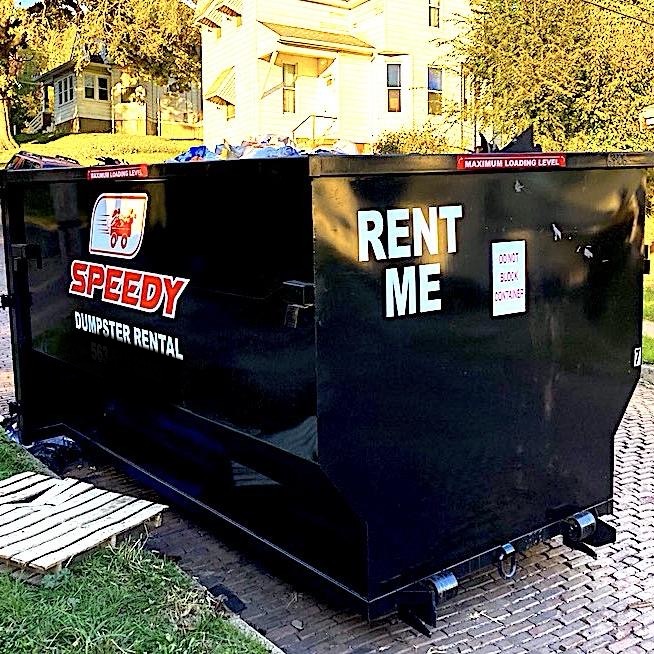OFFICE HOURS
Monday - Sunday: 7:00 AM - 7:30 PM

Residential Dumpsters Rental in Buffalo, IA
Rent a residential dumpster in Buffalo, IA with flexible short-term options, driveway-friendly sizes, and clear booking steps; reserve your dumpster today.
Residential Dumpsters Rental in Buffalo, IA
When you’re tackling a garage cleanout, home remodel, roof replacement, or yard clean-up in Buffalo, IA, the right residential dumpster rental simplifies disposal, keeps your property safe, and speeds project completion. This page explains the residential-friendly dumpster options suited to common home projects in Buffalo, IA, how to protect driveways and placement best practices, short-term rental policies, permit assistance for curbside placement, neighbor considerations, and step-by-step booking guidance — all presented for decision-stage homeowners ready to arrange reliable, transparent service.
Why choose a residential dumpster rental in Buffalo, IA
Buffalo-area homes range from older town properties to rural lots and seasonal residences. Iowa weather — with freeze-thaw cycles in spring, summer storm seasons, and occasional winter snow — raises practical concerns about safe placement, driveway protection, and timing. A residential dumpster sized and placed correctly reduces double-handling of debris, prevents damage to driveway surfaces, and keeps work areas tidy during inclement weather or tight project windows.
Common projects and recommended dumpster sizes
Selecting the right size avoids inefficiency and extra costs. Typical recommendations for Buffalo home projects:
- 10 cubic yard dumpster
- Best for: small garage cleanouts, minor bathroom or kitchen tear-outs, single-room carpet or flooring removal.
- Good when access is limited or driveway space is small.
- 15 cubic yard dumpster
- Best for: medium remodels, multiple-room flooring removal, larger garage cleanouts.
- Balances capacity and driveway footprint.
- 20 cubic yard dumpster
- Best for: substantial kitchen or basement renovations, multiple-room remodels, moderate roof tear-off projects for small homes.
- Common choice for whole-house clutter removal.
- 30+ cubic yard dumpster
- Best for: major renovations, full roof replacements on larger homes, estate cleanouts, or when handling bulky framing and siding debris.
- Requires more space and sturdier placement surface.
Consider the type of debris (construction waste, household junk, roofing shingles) when choosing size and confirming weight limits. Roofing projects often fill a dumpster quickly with heavy shingle material, so a larger footprint or additional container may be required.
Driveway protection and placement tips
Buffalo’s mixed driveway types (paved, concrete, gravel) and seasonal conditions mean placement strategy matters:
- Protect surfaces: Place 3/4-inch plywood sheets or dedicated driveway protection mats under the dumpster rails and wheels to distribute weight and prevent gouging or staining.
- Ground assessment: On thawing ground or soft gravel, locate the dumpster on the most stable, level area — closer to a garage apron or paved shoulder rather than soft lawn.
- Slope and clearance: Avoid placing a dumpster on a steep slope. Leave room for vehicle access to the home and emergency egress. Ensure the roll-off path is clear of low branches and overhead wires.
- Night visibility: If the container will remain overnight, position it so street traffic can see it clearly; temporary reflectors or cones improve safety on darker rural roads.
Short-term rental policies and what to expect
Residential dumpsters are typically offered with short-term rental windows aligned to home projects:
- Typical rental periods: Short-term windows (often several days to a week) are standard for residential jobs; extensions are available but require advance notice.
- Weight limits and overage: Each dumpster size includes a weight allowance. Exceeding that allowance may trigger overage charges; hazardous or prohibited items must not be placed inside.
- Pickup scheduling: Pickup times are scheduled within an agreed window. Consider weather impacts in Buffalo; rescheduling may be necessary if roads are unsafe due to storms or snow.
- Prohibited materials: Commonly restricted items include automotive fluids, batteries, propane tanks, most chemicals, certain appliances unless specified, and biological waste. Proper disposal pathways for hazardous materials can be advised.
Permit assistance for curbside placement
Curbside placement in Buffalo, IA often requires a permit from the city or county authority when the dumpster partially or fully occupies a public street or right-of-way. Typical support includes:
- Permitting guidance: Assistance with identifying which local agency issues permits, required lead time, and typical permit windows for residential placement.
- Documentation: Preparation of basic paperwork components — project address, placement diagram, start and end dates — so permit applications are complete and accurate.
- Timing: Permit approval times vary; planning for several business days reduces the risk of project delays. If curbside placement isn’t practical, driveway placement is a common alternative.
Neighbor considerations and community etiquette
Residential dumpster staging can impact neighbors; thoughtful planning minimizes disruption:
- Placement visibility: Choose a location that minimizes blocking driveways, sidewalks, and sightlines for neighboring homes.
- Noise and schedule: Coordinate delivery and pickup during daytime hours to avoid early-morning or late-evening disturbances.
- Notification: A brief note to adjacent neighbors about delivery windows and how long the container will remain can prevent misunderstandings, especially on narrow streets or shared drives.
- Property cleanup: Keep the surrounding area tidy. Sweep up debris and remove loose nails or sharp objects after container removal.
Step-by-step booking instructions
A clear booking process helps homeowners in Buffalo finalize arrangements quickly and with confidence:
- Define your project scope and estimated timeline (example: 3-day roof tear-off starting July 15).
- Choose the recommended dumpster size based on the project type and estimated debris volume.
- Select placement preference: driveway, curbside (permit may be needed), or alternate on-property location.
- Confirm rental window and any possible extension needs; ask about weather-related rescheduling policies.
- Provide property details for delivery: driveway condition (paved/gravel), access width and overhead clearances, and whether protective plywood is required.
- Review the rental agreement terms: flat-rate pricing structure, included weight allowance, prohibited items list, and overage or extension policies.
- Schedule delivery date and pickup window, ensuring permit timelines align if curbside placement is required.

Customer
Testimonials
See what our satisfied customers are saying about their experience with us.
